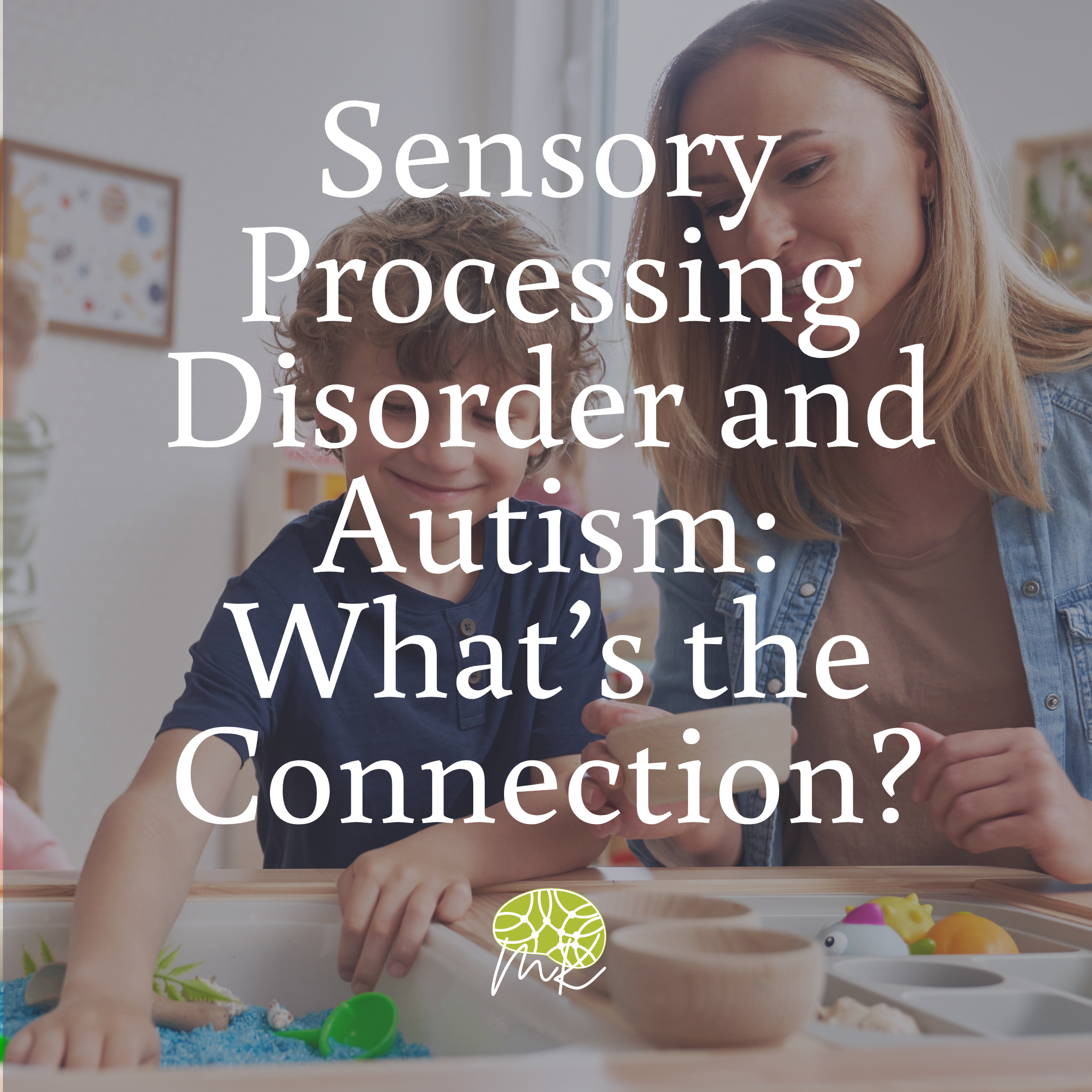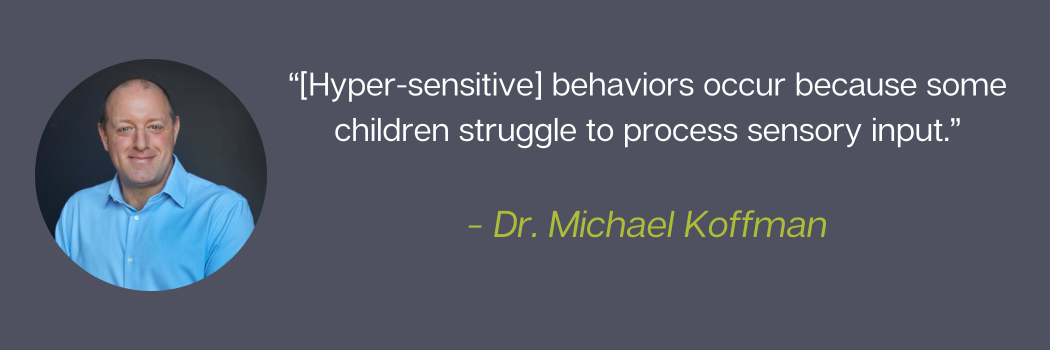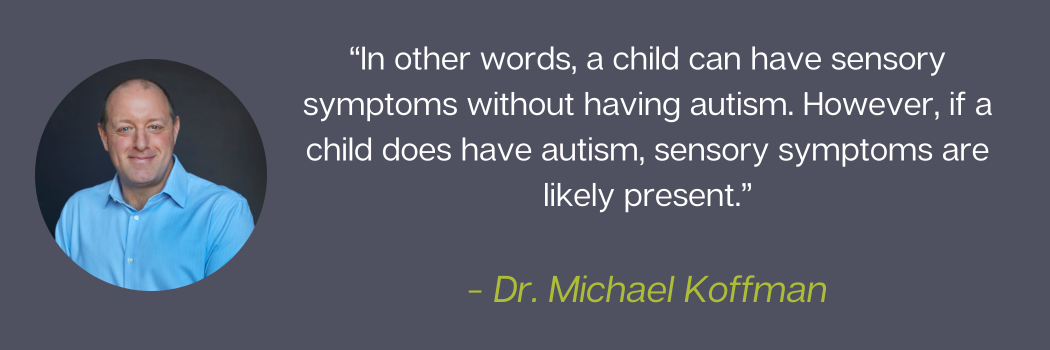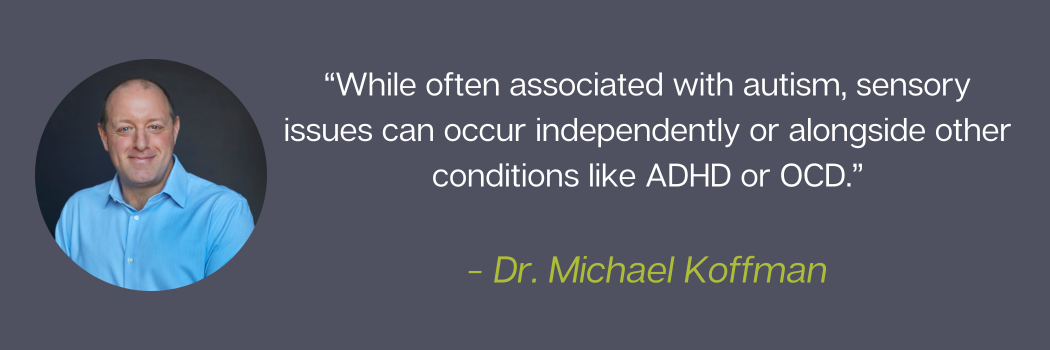Sensory Processing Disorder and Autism: What’s the Connection?
Gabriel is a 9-year-old boy who has always been very sensitive to certain sensory stimuli. According to his parents, this includes:
Loud, sudden noises: Gabriel avoids birthday parties and sporting events. As a result, he has missed out on many social opportunities.
Textures: Every morning, Gabriel insists on wearing loose-fitting clothes. He refuses to wear anything with tags or jeans, describing them as “uncomfortable.” This has disrupted the family’s morning routine and often makes him late for school.
Foods: Gabriel has a very limited palate, only eating specific foods and refusing most others. His rigidity around food makes it difficult for the family to dine out together.
Gabriel is not alone.
These behaviors occur because some children have trouble processing sensory input.
Hyper-sensitive children avoid strong sensory stimulation and become overwhelmed easily. Gabriel falls into this category.
Hypo-sensitive children, on the other hand, seek out sensory input. They may move constantly, crave physical contact, and have a higher threshold for pain.
Is Sensory Processing Disorder a Real Diagnosis?
There is ongoing debate about whether Sensory Processing Disorder (SPD) is a recognized medical condition.
Occupational therapists, who frequently work with children experiencing sensory challenges, often support its validity. However, many pediatricians and psychologists are more cautious and may not recognize SPD as a formal diagnosis. As such, these professionals often refer to “sensory symptoms” instead of labeling it a separate disorder.
The Overlap Between Autism and Sensory Processing Symptoms
Although commonly associated with autism, sensory challenges can also appear independently or with conditions like ADHD or OCD.
Autism is characterized by a broader range of behavioral, communication, and social difficulties. However, sensory processing difficulties are a core diagnostic feature of autism.
In other words, a child can have sensory symptoms without having autism. But if a child is diagnosed with autism, sensory symptoms are likely to be present.
Gabriel’s Next Steps
Further discussions with Gabriel’s parents revealed additional concerns: Gabriel struggled to make and keep friends, had difficulty focusing, exhibited behavioral issues, and experienced high levels of anxiety.
His parents decided to pursue a comprehensive neuropsychological evaluation to better understand these challenges. The results showed that Gabriel needed support across several areas, including sensory sensitivities, attention, organization, behavior, and anxiety.
A clinical intervention plan was developed, and several months later, Gabriel is doing much better in all aspects of his life. His family reports significant relief and progress.
To book a testing appointment or to speak further about my services, please feel free to contact me at 973-908-4860 or you can fill out our contact form here.
* All client names have been changed





